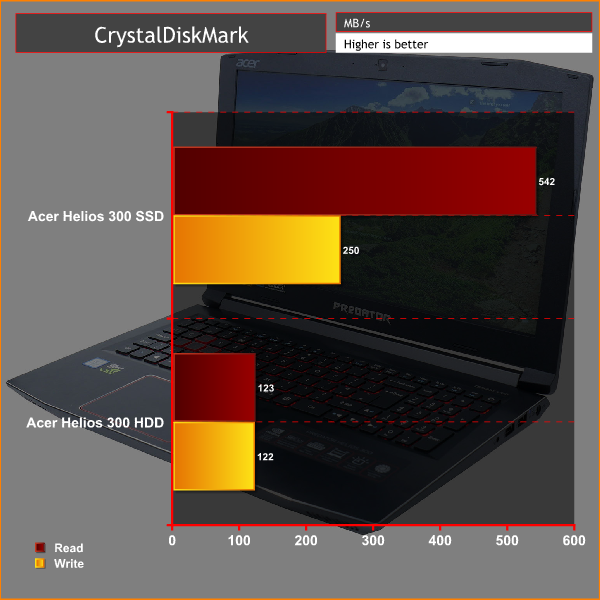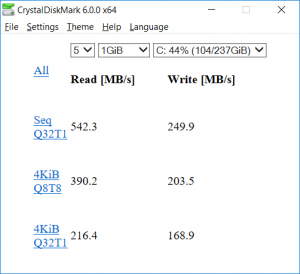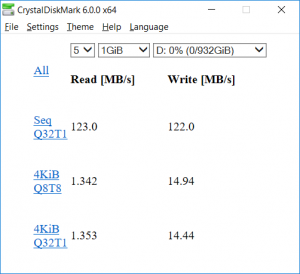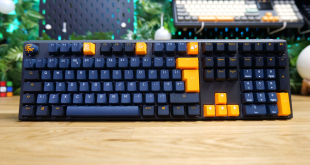CrystalDiskMark 5.1.1 is an industry standard benchmark for testing the raw speed of a storage device. It uses a test file to variously write data to or read data from the drive, checking for sequential read and write speed and random read and write performance, with it also testing performance at various queue depths. The size of the test file can be selected from 50MB to 32GB. We test using the default 1GB file size.
The Toshiba SSD used here is frankly a bit disappointing. Despite using a modern M.2 form factor it doesn’t use the modern NVMe connection standard so is limited to around 550MB/s read and write speed. However, it even struggles to hit these theoretical figures with it managing 542MB/s read speed and just 250MB/s write speed. By modern standards that’s downright poor.
You still end up with reasonably nippy boot up and game loading times, and file transfers aren’t too bad either but the difference compared to the fastest modern storage is still noticeable. Manually upgrading this drive would be a tempting option.
As for the 1TB hard drive, it offers the sort of performance that’s typical for a basic 2.5inch, 5,400rpm drive, i.e. rather slow. With 1TB SSDs now available for well under £200, upgrading this 2.5inch drive would be a good way to ensure all the data on your laptop can be accessed nice and quickly.
 KitGuru KitGuru.net – Tech News | Hardware News | Hardware Reviews | IOS | Mobile | Gaming | Graphics Cards
KitGuru KitGuru.net – Tech News | Hardware News | Hardware Reviews | IOS | Mobile | Gaming | Graphics Cards





